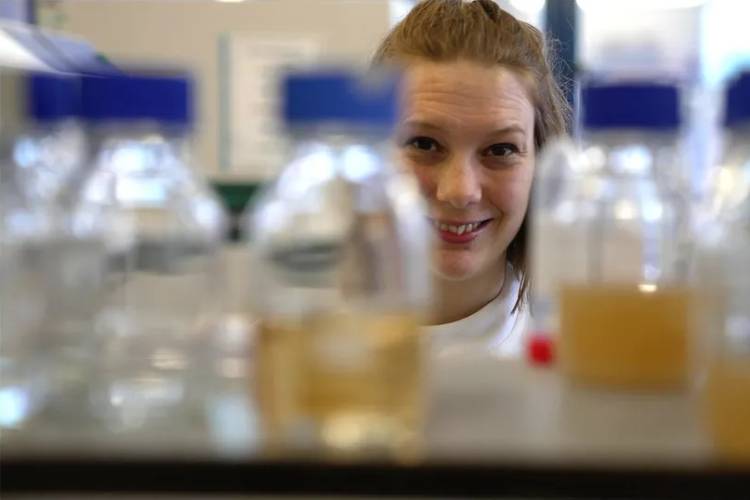A collaboration between Dr Helen Cockerton from the University’s School of Biosciences and local hop breeder Dr Klara Hajdu (Wye Hops) is beginning to attract media attention for what they hope will result in new hop varieties which are more resilient to drought, pests and diseases through genetic informed breeding.
The five-year project, which also involves National Institute of Agricultural Botany (NIAB), the British Hop Association, The Hop Plant Company and LGC genomics, has been awarded over half a million pounds by UK Research and Innovation (UKRI) to develop environmentally resilient ‘super hop’ varieties.
Media coverage so far includes a national BBC story and articles in Kent Online, Farming Life and Beer Today. Dr Cockerton and Dr Hajdu also spoke to a number of BBC regional radio stations about the project, including BBC Radio Kent.

Dr Helen Cockerton (School of Biosciences, right) in discussion with Pallab Ghosh (BBC Science Correspondent, left)
Earlier in March, the Minister of State at the Department for Environment, Food and Rural Affairs (DEFRA), Mark Spencer, visited the University and Wye Hops to learn more about the project. Dr Cockerton gave the Minister a tour of Kent’s Biotech Hub where he was given the opportunity to smell and taste different hop varieties and the beer they are used to produce.
Dr Cockerton said: ‘We’ve been delighted to share the story of our research with such a wide audience. The tools we will develop through this project will enable us to generate better hops faster than we could achieve through using traditional approaches alone, which will play an important role in future proofing the UK’s hop and brewing industries.’

Dr Helen Cockerton, DEFRA Minister Mark Spencer and Deputy Vice-Chancellor Professor Shane Weller in the School of Biosciences laboratories

Pallab Ghosh (BBC Science correspondent, right) sampling beer produced by Eddie Gadd (Head brewer at Ramsgate Brewery, centre) from experimental hops bred by Dr Klara Hajdu (Wye Hops, left). Filming in K Bar at the University’s Canterbury campus.

